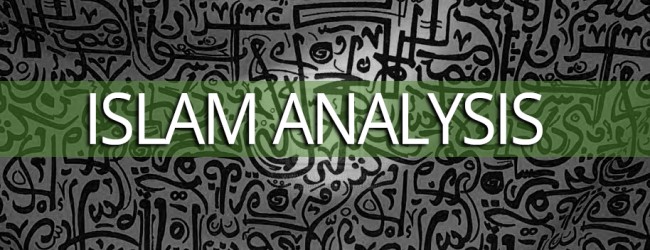
By: Athar Osama
7 September 2010 | EN
Scientific cooperation in the Islamic world needs more than secure funding — a compelling set of projects is also essential, says Athar Osama.
Scientific cooperation between Islamic countries has a lacklustre record, marked by a shortage of resources and a lack of political will for investment. The few countries that have invested heavily in recent years — including Iran, Pakistan, Qatar and Saudi Arabia — have chosen to work instead with scientifically advanced countries in North–South collaborations that offer more obvious benefits than partnerships among themselves.
But the need for South–South cooperation is becoming increasingly clear, particularly on shared problems, such as tropical diseases, agriculture or threats from climate change, that are unique to the developing world or have low priority in the North.
On 21 June, a select group of member countries of the Organisation of the Islamic Conference (OIC) met in Jeddah, Saudi Arabia, to finalise the arrangements for establishing the new Science, Technology and Innovation Organisation (STIO).
Set to launch next year, STIO will be responsible for building scientific capacity and collaboration within the Islamic world. If it can stimulate real collaboration within the OIC, it could help build a critical mass of scientists with the necessary momentum to tackle some of the region’s problems.
But in its eagerness to recruit members and raise a sizeable budget, STIO has made early compromises on the way its funds will be administered. Unless its founders quickly launch a core set of well-designed and coherent programmes, these compromises could undermine the effectiveness of the whole enterprise.
Hamstrung
The idea of creating an organisation to cultivate scientific cooperation and capacity building in the Islamic world is not new — the OIC’s Standing Committee on Scientific and Technological Cooperation (COMSTECH) has been promoting individual and collective scientific capacity building since 1981.
But with voluntary donations (despite mandatory membership) and a mandate to advise on, but not implement, policies, COMSTECH has been hamstrung in its efforts to bring about meaningful change.
Unable to raise the resources it needed to support its aspirations, it has largely restricted itself to working in partnership with better-funded organisations, such as TWAS (the academy of sciences for the developing world), the Islamic Development Bank and the WHO.
Bigger budget
Those setting up STIO have clearly learnt from COMSTECH’s experience. For example, unlike COMSTECH, financial contributions to STIO’s programmes — which are larger than those made to COMSTECH — are mandatory for all members, although membership is voluntary.
In addition, STIO is specifically charged with implementing approved programmes, rather than simply advising on policies. These programmes are expected to include building regional centres of excellence, establishing research linkage programmes, and implementing initiatives to develop human resources.
Atta-ur-Rahman, the director general of STIO, is confident that his organisation will deliver where its predecessor failed. More than 20 countries have joined STIO since membership opened in February, he says.
During a recent budget meeting, STIO members agreed a target annual budget of US$70 million, of which about US$20 million has already been committed by four founding members. If STIO comes close to this target, it would be an order of magnitude greater than its predecessor.
Loss of control
But STIO has been forced to make hefty concessions in exchange for this money. In particular, it has had to agree to its members keeping as much as 90 per cent of their contributions within their own country, to spend at their own discretion. As a result, countries will have considerable flexibility to spend the money they commit to STIO on any project they deem appropriate as long as it is coordinated through the STIO secretariat.
So far, STIO has demanded only that the projects be in line with OIC’s Vision 1441 — a set of 2020 targets in higher education, science and technology — and its associated Science and Technology Action Plan.
“The critical factor that sealed the deal was the willingness to let STIO members keep the money within their respective countries,” says Atta-ur-Rahman. It was the slogan “your money for your development”, he explains, that ultimately convinced many member countries to join.
But this ‘hands-off’ approach could limit STIO’s potential impact. It means that STIO cannot at this stage guarantee any significant contributions to an ‘approved’ set of collaborative research programmes.
Countries are being encouraged to find additional money to support STIO projects, but the organisation cannot stop individual countries diverting money from their existing science budgets.
Attractive projects
Guarding against these pitfalls is likely to require creative policy and programme design. STIO members must find the programmes both compelling and useful — they must provide significant and demonstrable progress towards member countries’ scientific and socioeconomic development goals.
But whether they will remains uncertain, largely because the projects themselves still lack definition. The organisation’s leaders, careful to preserve the delicate consensus they have painstakingly built, are being cautious in their commitments. “We want to make a small but good start and grow in accordance with our capabilities — and not over-commit,” says Atta-ur-Rahman.
So far, STIO’s leaders and architects have done a commendable job in building a critical mass of support, in principle, for scientific cooperation within the OIC. And they have the prospect of enough funds to make a real impact. But to be effective, they must now come up with convincing and attractive programmes and projects.
Athar Osama is a London-based science and innovation policy researcher and consultant, the founder of localhost/muslim and a visiting fellow at Boston University’s Pardee Centre for Study of Longer Range Future. Published by SciDev.Net
You must be logged in to post a comment.